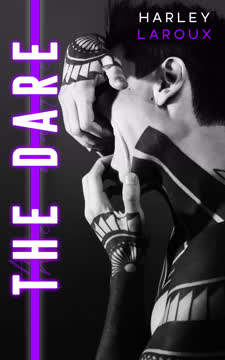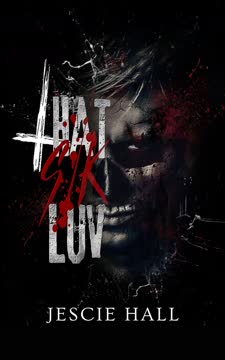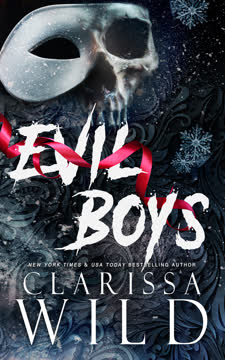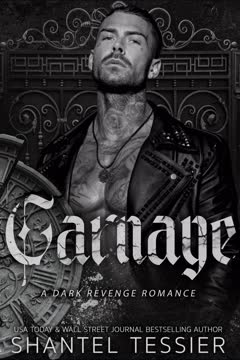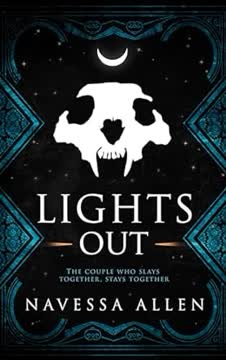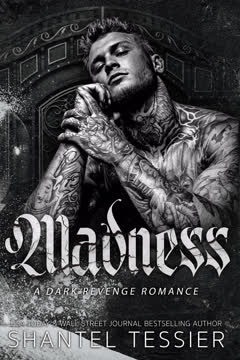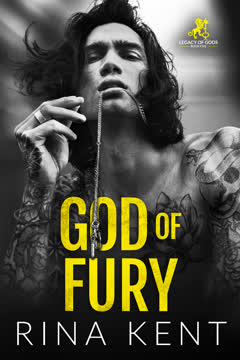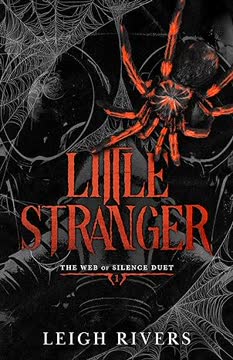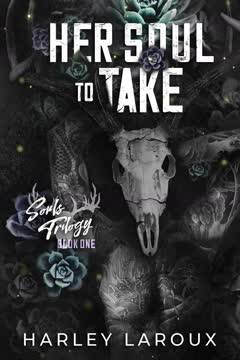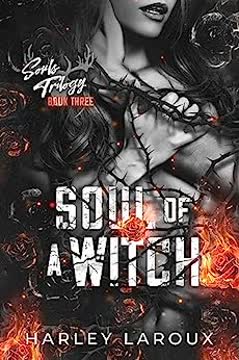Plot Summary
Haunted Beginnings, Fractured Homes
Manson Reed's world is defined by violence, neglect, and the constant threat of his father's return. His home is a battlefield, his mind a warzone. The only constants are his fiercely loyal friends—Lucas, Jason, and Vincent—each carrying their own scars from family, bullying, and rejection. Jessica, the beautiful, popular cheerleader, is a distant, untouchable figure, but even she is not immune to pain. Her life is a performance, her mother's expectations a cage. When Manson's father returns, the threat of violence looms, and the group's fragile sense of safety is shattered. The story opens with a sense of dread and survival, setting the tone for a journey where trauma, anger, and longing for connection drive every choice.
Unlikely Alliances, Old Wounds
Jessica's world collides with the boys' when a series of humiliations and betrayals leave her isolated from her old friends. The group, once her tormentors and rivals, become her unlikely saviors. Old wounds—bullying, body shaming, parental abuse—surface as the group navigates the treacherous waters of high school. The boys, each outcast in their own way, find solace in each other and, unexpectedly, in Jessica. Their shared pain becomes a strange glue, and the lines between hate and desire blur. The group's dynamic is raw, honest, and often cruel, but beneath the surface is a desperate need for acceptance and love.
Debts, Dares, and Desire
Jessica's car breaks down, and the boys offer to fix it—for a price. The "debt" is not monetary, but a dare: her body, her submission, her time. What begins as a transactional arrangement quickly spirals into a game of power, submission, and consent. The boys push Jessica's boundaries, forcing her to confront her own desires and the shame she's been taught to feel. The group's sexual exploration is intense, taboo, and cathartic, serving as both punishment and healing. Through pain and pleasure, Jessica and the boys begin to shed their masks, revealing the vulnerable selves beneath.
The Pact of Five
As Jessica's "debt" deepens, the group's connection grows. What started as a game becomes a lifeline. Each member brings their own trauma—Manson's violence, Lucas's anger, Jason's religious shame, Vincent's need for connection, Jessica's self-loathing—and together, they create a space where brokenness is not just tolerated, but cherished. The group's polyamorous dynamic is messy, passionate, and fiercely loyal. They set rules, establish safewords, and learn to communicate, transforming their pain into trust. The outside world—parents, ex-friends, small-town bigotry—remains a threat, but inside their circle, they find a sense of belonging none have ever known.
Breaking and Remaking Jessica
Jessica's journey is one of surrender—not just to the boys, but to herself. Through scenes of intense BDSM, humiliation, and public play, she confronts the shame instilled by her mother and society. The boys break her down, but also build her up, teaching her that her desires are not dirty, that her worth is not tied to perfection. In their hands, she learns to ask for what she wants, to set boundaries, and to trust. The group's dynamic is not without conflict—jealousy, insecurity, and old habits threaten to tear them apart—but each confrontation brings them closer, forging a new identity from the ashes of their old lives.
The Mountain Escape
The group escapes to a remote cabin, leaving behind the suffocating judgment of their hometown. Here, they are free to indulge every fantasy—kidnapping play, bondage, pain, and pleasure. The weekend is a crucible: old traumas surface, confessions are made, and the group's bond is tested. Manson's struggle with his father's legacy, Lucas's fear of abandonment, Jason's guilt, Vincent's longing for family, and Jessica's need for acceptance all come to a head. The mountain becomes a place of both healing and danger, as the group realizes that their love is both a shield and a target.
Confessions Under the Stars
In the quiet after chaos, Jessica and the boys confront their pasts. Apologies are made for old cruelties—bullying, betrayal, and neglect. Forgiveness is not easy, but it is given, and in its wake comes the courage to love openly. The group's dynamic shifts from transactional to genuine, as each member admits their feelings and fears. The mountain night becomes a sacred space for vulnerability, where love is spoken aloud and the promise of a future together is born.
Family, Forgiveness, and Fury
Returning from the mountain, the group faces the realities of their lives. Vincent's family welcomes Jessica, offering a glimpse of unconditional love and acceptance. Manson's father, however, becomes an ever-present threat, his violence escalating. Jessica's mother's attempts to control her intensify, leading to explosive confrontations. The group must navigate the minefield of family expectations, bigotry, and the ever-present danger of being outed. Through it all, their bond is tested, but the promise of chosen family gives them strength.
The Taste of Freedom
The group finds freedom in speed—racing cars, burning rubber, and defying the rules. The sideshow becomes a battleground, both literal and metaphorical, as old enemies resurface. Nate and Alex, fueled by jealousy and hatred, target the group, leading to dangerous chases and near-fatal encounters. The thrill of rebellion is intoxicating, but the consequences are real. The group's unity is their only defense against a world determined to break them.
The Sideshow and the Sabotage
The group's enemies escalate their attacks, sabotaging cars and orchestrating ambushes. A high-speed chase nearly ends in tragedy, and the group is forced to confront the reality that their love makes them a target. The violence is not just physical—rumors, threats, and betrayals from old friends and family cut deep. The group must decide whether to fight back or run, and the choice will define their future.
Violence, Vengeance, and Vulnerability
When Jessica is attacked by Alex and Nate, the group's restraint snaps. Manson, Lucas, and Jason hunt down their enemies, delivering brutal retribution. The violence is cathartic but costly, forcing each member to confront the darkness within themselves. The line between justice and vengeance blurs, and the group must reckon with what they are willing to do to protect each other. In the aftermath, vulnerability becomes their only path to healing.
The Reckoning at Home
Reagan, Manson's father, returns for a final, desperate act of destruction. He enlists Alex in a plot to burn the house down, intending to kill them all. Jessica is nearly strangled, the house is drenched in gasoline, and chaos erupts. The group's survival depends on their unity, their willingness to fight for each other, and the intervention of their loyal dog, Jojo. The trauma is immense, but in the ashes, a new beginning is possible.
Healing, Hope, and Homecomings
In the aftermath of violence, the group begins to heal. Jessica's parents, once obstacles, become allies. The group's love is recognized and accepted, and the threat of Reagan and Alex is finally removed. Therapy, forgiveness, and the slow work of rebuilding trust become central. The group's bond is stronger than ever, and the dream of a future together—free from fear—becomes real.
The New York Promise
With the past behind them, the group moves forward. They buy a house together outside New York City, a symbol of their commitment and hope. The house is a haven, filled with light, laughter, and the promise of family. Jessica is given a key and a ring, a proposal of forever from all four men. The group's polyamorous love is celebrated, and the future is wide open.
Collared for Forever
On Halloween, the group celebrates their love with a collaring ceremony for Jessica. The collar is both a symbol of submission and a promise of care, safety, and belonging. The group's dynamic is playful, passionate, and deeply loving. The past is not forgotten, but it no longer defines them. Together, they create new rituals, new memories, and a new family.
The Past That Haunts
The scars of the past remain—trauma, abuse, shame—but the group learns that healing is a lifelong process. Therapy, honesty, and the support of chosen family become their tools for survival. Each member confronts their demons, and together, they find the strength to move forward. The story acknowledges that pain does not simply vanish, but with love and support, it can be transformed.
The Power of Chosen Family
In the end, the group's greatest victory is not in defeating their enemies, but in choosing each other. Their love is radical, defiant, and healing. They create a family not defined by blood, but by choice—a family where every broken piece is cherished, every wound is tended, and every desire is honored. The story closes with the promise of more: more love, more adventures, and the unbreakable bond of those who have survived together.
Characters
Manson Reed
Manson is the group's dark center—a survivor of childhood abuse, neglect, and violence. His father's return is a constant threat, and his mind is a battlefield of rage, guilt, and longing for control. Manson's leadership is not about dominance, but about protection; he is fiercely loyal, willing to do anything to keep his chosen family safe. His relationship with Jessica is both tender and brutal, a space where he can be both monster and savior. Manson's journey is one of learning to accept love, to forgive himself, and to believe that he is worthy of happiness. His trauma is never far from the surface, but through therapy, vulnerability, and the support of his partners, he begins to heal.
Jessica Martin
Jessica is the story's emotional heart—a popular girl whose life is a performance for her mother and the world. Beneath her perfection is a well of shame, self-loathing, and longing for acceptance. Her journey from enemy to lover, from object to subject, is the story's core. Through submission, humiliation, and the breaking of old patterns, Jessica learns to ask for what she wants, to set boundaries, and to trust. Her relationship with the boys is both healing and challenging, forcing her to confront the lies she's been told about herself. Jessica's arc is one of self-discovery, as she learns that her desires are not dirty, that her worth is not conditional, and that she is capable of both giving and receiving love.
Lucas Bent
Lucas is the group's muscle and its most wounded soul. Scarred by poverty, violence, and the loss of his brother, Lucas's anger is both a shield and a prison. He is fiercely protective, quick to violence when those he loves are threatened. His relationship with Jessica is fraught with tension—he is both her tormentor and her savior, her harshest critic and her most loyal defender. Lucas's journey is one of learning to accept gentleness, to believe that he deserves love, and to seek healing through therapy and vulnerability. His bond with Manson is deep, forged in shared trauma, and his eventual acceptance of Jessica is a hard-won victory.
Jason Roth
Jason is the group's conscience—a boy raised in a strict religious home, cast out for his sexuality. His trauma is quieter but no less profound: the loss of family, the weight of shame, and the struggle to reconcile faith and desire. Jason's relationship with Vincent is his anchor, but his love for Jessica is transformative. He is both a caretaker and a brat, a switch who finds fulfillment in both dominance and submission. Jason's arc is about forgiveness—of himself, of others, and of the world that rejected him. His journey is a testament to the power of chosen family and the courage to live authentically.
Vincent Volkov
Vincent is the group's glue—a charismatic, creative soul who craves connection and family. Raised in a loving but chaotic home, Vincent is both caretaker and instigator, always seeking to bring people together. His relationship with Jason is foundational, but his love for Jessica and the others is expansive. Vincent is the group's optimist, always believing in the possibility of healing and happiness. His journey is about learning to balance his need for connection with his own boundaries, and to trust that he is loved for who he is, not just what he gives.
Reagan Reed
Reagan is the story's primary antagonist—a violent, manipulative man whose return threatens to destroy everything the group has built. He is both a literal and symbolic force, representing the inescapability of trauma and the danger of the past. His final act of violence—attempting to burn the house down—forces the group to confront their deepest fears and to fight for their survival. Reagan's defeat is not just a victory over an enemy, but a triumph over the legacy of abuse.
Alex McAllister
Alex is a former friend turned enemy, driven by jealousy, entitlement, and misogyny. His attacks on Jessica and the group escalate from petty sabotage to physical violence, culminating in a brutal confrontation. Alex is both a product and perpetrator of toxic masculinity, unable to accept rejection or defeat. His eventual downfall is a warning about the dangers of unchecked rage and the refusal to change.
Nate
Nate is Alex's muscle—a big man with a small conscience. He is easily manipulated, willing to do violence for money or approval. Nate's role is less personal than Alex's, but his participation in the group's torment is no less damaging. His eventual confession to the police is a small act of redemption, but he remains a cautionary figure.
Mrs. Martin
Jessica's mother is both a villain and a victim—her need for control, perfection, and social approval drives much of Jessica's pain. She is emotionally abusive, body-shaming, and dismissive of Jessica's desires. Her eventual acceptance of Jessica's relationship with the boys is hard-won, and her breakdown after Jessica's near-death experience is a moment of reckoning. Mrs. Martin represents the generational cycle of shame and the possibility of change.
Jojo (the dog)
Jojo is more than a pet—she is a symbol of loyalty, protection, and the power of love to heal. Her intervention during the final attack saves Jessica's life, and her presence is a constant comfort to the group. Jojo's journey from silly puppy to fierce protector mirrors the group's own transformation from broken individuals to a united family.
Plot Devices
Trauma as Bond and Barrier
The story's central device is the use of trauma—not just as backstory, but as an active force shaping every relationship. Each character's wounds are both a source of empathy and a barrier to intimacy. The narrative structure alternates between perspectives, allowing the reader to see how trauma is experienced, processed, and (sometimes) overcome. The group's sexual exploration is both a metaphor for and a literal enactment of their struggle to reclaim agency, trust, and pleasure. The story uses flashbacks, confessions, and confrontations to reveal the layers of pain and the slow work of healing.
Power, Submission, and Consent
BDSM is not just titillation—it is the language through which the characters negotiate power, trust, and vulnerability. Safewords, aftercare, and negotiation are central, and the story is careful to show both the risks and rewards of pushing boundaries. The group's dynamic is fluid—roles shift, desires change, and consent is always foregrounded. The collaring ceremony, the use of restraints, and the exploration of taboo desires are all plot devices that serve to break down shame and build trust.
Chosen Family vs. Blood Family
The contrast between the group's chosen family and their families of origin is a recurring motif. The warmth of Vincent's home, the violence of Manson's, the coldness of Jessica's—each serves as a backdrop for the group's creation of their own haven. The story uses family dinners, confrontations with parents, and the act of buying a house together as devices to show the power of choice, the possibility of change, and the importance of belonging.
Escalating Threats and Cathartic Violence
The threats from Reagan, Alex, and Nate are not just plot obstacles—they are externalizations of the group's internal fears. The violence is both literal and symbolic, forcing the group to confront what they are willing to do to protect each other. The climactic confrontation—fire, strangulation, and rescue—serves as both a literal and emotional catharsis, allowing the group to finally move forward.
Rituals of Love and Belonging
The story uses rituals—collaring ceremonies, proposals, housewarmings, and holidays—to mark the group's progress from brokenness to belonging. These rituals are both playful and profound, serving as anchors in a world that is often hostile. The final scenes—Jessica's collaring, the group's move to New York, and the promise of children—are devices that signal not just survival, but the possibility of joy.
Analysis
Losers: Part II is a raw, unflinching exploration of trauma, sexuality, and the radical power of chosen family. Harley Laroux crafts a narrative that is both deeply erotic and profoundly emotional, using the language of BDSM not just for titillation, but as a means of healing, trust, and transformation. The story's polyamorous dynamic is messy, passionate, and fiercely loyal, challenging conventional notions of love, gender, and power. At its core, the book is about survival—how broken people can find each other, create their own family, and build a life worth living. The violence and darkness are never gratuitous; they serve to highlight the courage required to love in a world that punishes difference. The ultimate message is one of hope: that healing is possible, that love can be both wild and safe, and that the families we choose can save us when the families we're born into cannot. In a world that often tells us we are too much, too broken, or too strange, Losers: Part II insists that we are enough—and that we are worthy of love, exactly as we are.
Last updated:
FAQ
Synopsis & Basic Details
What is Losers: Part II about?
- A Journey of Healing: Losers: Part II continues the story of Jessica Martin and the four men—Manson, Lucas, Jason, and Vincent—who become her chosen family. It delves deeper into their individual and collective traumas, exploring how their unconventional polyamorous relationship, often expressed through BDSM, becomes a powerful vehicle for healing and self-discovery.
- Confronting External Threats: The narrative intensifies as the group faces escalating external threats from old enemies like Alex McAllister and Nate, fueled by Manson's abusive father, Reagan Reed. These conflicts force the characters to solidify their bonds and fight fiercely to protect their newfound sense of belonging and safety.
- Building a Future Together: Beyond the immediate dangers, the book chronicles their journey towards building a shared future. This includes Jessica's career aspirations, the men's plans to relocate, and their collective decision to create a permanent home and family unit, culminating in a symbolic proposal and collaring ceremony that cements their commitment.
Why should I read Losers: Part II?
- Deep Dive into Trauma & Healing: Readers seeking a raw and honest exploration of how childhood trauma, societal judgment, and personal insecurities can be addressed through radical acceptance and chosen family will find this book profoundly moving. It offers a unique perspective on healing through unconventional relationships.
- Intense Emotional & Sexual Exploration: For those interested in dark romance and BDSM, Losers: Part II provides graphic, consensual scenes that are intricately woven into the characters' emotional arcs. The story uses these dynamics to explore themes of control, surrender, vulnerability, and trust, making the sexual content deeply meaningful.
- Compelling Character Development: The book excels in showing significant growth for all five main characters. Jessica's transformation from a guarded, people-pleasing "popular girl" to a confident, self-aware woman, and the men's individual struggles with anger, shame, and responsibility, offer a rich and satisfying character-driven narrative.
What is the background of Losers: Part II?
- Small-Town Bigotry & Outcast Identity: The story is set against the backdrop of Wickeston, a small town where social hierarchies and conservative values create an oppressive environment for the protagonists. Their status as "losers" or outcasts, due to their appearances, pasts, or sexualities, forms a crucial context for their bond and their defiance against societal norms.
- Exploration of Polyamory & BDSM: The book operates within the framework of a polyamorous relationship, where multiple partners share love and intimacy. It also heavily features BDSM (Bondage, Discipline, Sadism, Masochism) as a consensual practice that allows characters to explore power dynamics, vulnerability, and trust in a safe, negotiated space.
- Themes of Found Family & Resilience: Culturally, Losers: Part II taps into the universal human need for belonging, especially for those rejected by their biological families or mainstream society. It champions the idea of creating one's own family based on shared experiences, mutual support, and unconditional love, highlighting resilience in the face of adversity.
What are the most memorable quotes in Losers: Part II?
- "A sad person knows what another sad person looks like." (Manson, Chapter 1): This quote encapsulates Manson's profound empathy and his ability to see beyond Jessica's superficial facade, recognizing her hidden pain. It highlights the theme of shared vulnerability as a foundation for connection, hinting at the deeper understanding that will bind them.
- "You deserve to be loved, Lucas. You deserve to be happy. You deserve to heal." (Jessica, Chapter 35): This pivotal statement from Jessica to Lucas marks a significant turning point in his character arc. It directly challenges his deeply ingrained self-loathing and belief that he is undeserving of kindness, serving as a powerful affirmation of his worth and the possibility of his healing.
- "We've spent all our lives reaching for the light, and you burned through us like fire." (Manson, Chapter 48): This line from the proposal letter beautifully articulates Jessica's transformative impact on the men. It symbolizes her role as a catalyst for their collective growth and happiness, portraying her as a powerful, life-altering force that brought warmth and purpose to their previously dark and struggling lives.
What writing style, narrative choices, and literary techniques does Harley Laroux use?
- Alternating First-Person POV: Laroux employs a rotating first-person perspective, primarily shifting between Jessica and the four men. This narrative choice provides intimate access to each character's internal thoughts, motivations, and emotional struggles, allowing readers to deeply empathize with their individual journeys and understand the complex dynamics of their polyamorous relationship.
- Sensory-Rich and Visceral Language: The author uses highly descriptive and visceral language, particularly in BDSM scenes and moments of intense emotion or violence. This creates an immersive experience, drawing readers into the characters' physical sensations and psychological states, making the raw emotions and taboo acts feel immediate and impactful.
- Symbolism and Foreshadowing: Laroux subtly weaves in symbolism (e.g., the snake tattoo, the abandoned houses, the collaring ceremony) and foreshadowing (e.g., Manson's early thoughts of violence, Lucas's fear of confinement) to enrich the narrative. These literary devices add layers of meaning, hinting at deeper themes and future plot developments, rewarding attentive readers with a more profound understanding of the story's complexities.
Hidden Details & Subtle Connections
What are some minor details that add significant meaning?
- Jason's Metal Shop Rings: Jason's self-made rings, described as "thick enough to be weapons" and "little suits of armor" (Chapter 5), subtly reveal his underlying insecurity and desire for protection. Despite his gentle nature, these rings symbolize his need to project strength and emulate Lucas's toughness, highlighting his journey from timidity to self-acceptance.
- Vincent's Childhood Art in Abandoned Houses: Vincent's habit of painting murals in abandoned houses, particularly the one dedicated to Jessica (Chapter 31), is a profound detail. It signifies his need for a private, personal space for expression, distinct from his chaotic but loving family home. This act of creating art in hidden, forgotten places reflects his deep-seated desire for intimacy and connection that he only shares with those he truly trusts.
- Lucas's Cat Colony: Lucas secretly caring for a colony of stray cats (Chapter 35), despite his gruff exterior and claims of not caring, is a powerful indicator of his inherent kindness and protective nature. His statement, "You're trying to give them what the world never gave you," reveals his deep empathy and his own unacknowledged need for care and belonging, subtly foreshadowing his journey towards accepting love and healing.
What are some subtle foreshadowing and callbacks?
- Manson's Butterfly Knife and Early Thoughts of Violence: In Chapter 1, Manson is introduced flipping his butterfly knife, contemplating killing his father and "strewn his guts around the house like a goddamn work of art." This early, chilling thought foreshadows the intense, almost artistic violence he later inflicts on Alex (Chapter 44), revealing a controlled but potent capacity for brutality when his loved ones are threatened.
- Jessica's "Diabolical" Nature: When Jessica suggests dating Alex for revenge, Manson calls her "diabolical" (Chapter 1). This seemingly playful observation subtly foreshadows her later, more assertive and strategic actions, such as her calculated confrontation with Greg (Chapter 19) and her fierce defense of Lucas at the mall (Chapter 20), demonstrating her growing confidence in wielding her own power.
- Lucas's Fear of Confinement and the Mall Incident: Lucas's deep-seated fear of being "locked up" (Chapter 25) is a recurring motif. The incident at the outlet mall (Chapter 20), where he is nearly arrested and tased, serves as a direct callback to this fear, highlighting his vulnerability and the trauma associated with authority figures. His inability to speak or advocate for himself in that moment underscores the profound impact of his past experiences.
What are some unexpected character connections?
- Lucas and Mrs. Martin's Shared Stubbornness: Despite their initial animosity, Lucas and Mrs. Martin share a surprising stubbornness. Lucas's internal thought, "She's even more stubborn than I am, trust me, there's no wearing her down" (Chapter 36), reveals an unexpected recognition of a shared trait. This subtle connection hints at the possibility of a grudging respect, which later manifests in Mrs. Martin's eventual, albeit reluctant, acceptance of Lucas.
- Jason's "Corruption Kink" as a Coping Mechanism: Jason's admission of a "corruption kink" (Chapter 33) is an unexpected connection to his religious trauma. He explains it as a "coping mechanism," turning the painful experience of being deemed "corrupted" by his family into a form of play. This reveals a deeper psychological complexity, showing how he reclaims agency over his past by transforming shame into a source of pleasure within his consensual relationships.
- Manson's "Glimpse of Heaven from Hell": Manson's confession to Jessica, "Because you were my glimpse of heaven from hell" (Chapter 19), reveals an unexpected spiritual dimension to his feelings. For a character so defined by darkness and trauma, this poetic expression of love connects Jessica to a profound sense of salvation and hope, elevating their relationship beyond mere physical attraction.
Who are the most significant supporting characters?
- Julia, Jessica's Unwavering Friend: Julia serves as a crucial anchor for Jessica outside the polyamorous group. Her consistent support, practical advice ("You need to move out," Chapter 20), and willingness to stand by Jessica even in dangerous situations (the hike attack, Chapter 42) highlight the importance of platonic friendship. She represents a healthy, non-judgmental female bond that contrasts sharply with Jessica's relationship with her mother and former friends.
- Dante, The Loyal Ally: Dante, the shop's first client and a drag racing enthusiast, is more than just a customer; he's a loyal ally. His warnings about escalating threats (Chapter 23) and his unwavering support for the boys ("I've got your back, so do my people," Chapter 23) underscore the theme of chosen family extending beyond the core group. He provides a crucial external network of protection and resources, emphasizing that their community is larger than just the five of them.
- The Volkov Family (Stephan and Vera): Vincent's parents, Stephan and Vera, are pivotal in demonstrating the power of unconditional love and acceptance. Their open-mindedness towards polyamory, their immediate welcome of Jessica (Chapter 15), and their role as a safe haven for the boys (Chapter 16) provide a stark contrast to the other characters' dysfunctional families. They embody the ideal of chosen family, offering a blueprint for the kind of loving, supportive home the protagonists strive to build.
Psychological, Emotional, & Relational Analysis
What are some unspoken motivations of the characters?
- Manson's Need for Control as a Shield: Manson's seemingly calm demeanor and desire for control (Chapter 10) are unspoken motivations stemming from his traumatic childhood. He admits, "My therapist said it was part of my need for control, because control made me feel safe." This reveals that his dominant tendencies and leadership role are not just about power, but a deeply ingrained coping mechanism to manage his internal chaos and protect himself and his loved ones from the unpredictability of life.
- Jessica's Desire for Authentic Self-Expression: Beneath Jessica's initial "stuck-up bitch" persona (Chapter 1), her unspoken motivation is a desperate longing for authentic self-expression and acceptance. Her willingness to engage in taboo BDSM fantasies and her eventual embrace of her "diabolical" side (Chapter 1) are driven by a need to shed the performative perfection imposed by her mother and discover her true desires, even if they are "ugly, offensive, shocking, or repulsive" (Chapter 4).
- Lucas's Pursuit of Self-Worth Through Protection: Lucas's fierce protectiveness, often expressed through anger and violence, is an unspoken motivation rooted in his deep-seated feelings of worthlessness and abandonment (Chapter 35). His statement, "I wasn't the person that people loved. I was the person who was tolerated," reveals his core insecurity. By protecting Jessica and the others, he subconsciously seeks to prove his value and earn the love he believes he doesn't deserve, leading to his eventual decision to seek therapy.
What psychological complexities do the characters exhibit?
- Manson's Dissociation and Apathy: Manson exhibits psychological complexities related to dissociation and encroaching apathy (Chapter 1). He describes feeling "disconnected. From my body, from my brain. Like I'm falling apart" (Chapter 10), a common trauma response. This internal struggle between caring "far too much" and not caring "enough" highlights the profound impact of his childhood abuse, making his moments of tenderness and vulnerability all the more significant.
- Jason's Internalized Shame and Reclaiming Identity: Jason's psychological complexity lies in his internalized religious shame and his journey to reclaim his identity. His description of his childhood love being "conditional" (Chapter 33) and his use of "corruption kink" as a coping mechanism (Chapter 33) illustrate how he transforms his pain. He actively reorients his brain to turn a source of profound hurt into a consensual, empowering play, demonstrating a sophisticated psychological resilience.
- Lucas's Cycle of Anger and Self-Sabotage: Lucas's character is marked by a complex cycle of anger, self-sabotage, and a deep fear of vulnerability. His tendency to "fly off the handle at every random provocation" (Chapter 36) and his admission of pushing away those who care for him ("In an effort not to lose the love I'd found, I almost destroyed it," Chapter 35) reveal a self-protective mechanism that paradoxically isolates him. His journey involves confronting this cycle and learning to accept kindness and support.
What are the major emotional turning points?
- Jessica's Apology to Jason: Jessica's heartfelt apology to Jason for her past bullying (Chapter 5) is a major emotional turning point. It signifies her shedding of her old, cruel persona and her genuine desire for connection and amends. Jason's acceptance, coupled with his revelation about her mother's body-shaming, creates a profound moment of mutual understanding and forgiveness, deepening their individual and collective bonds.
- Lucas's Decision to Seek Therapy: Lucas's declaration, "I think I want to go to therapy" (Chapter 36), is a monumental emotional turning point. It represents his willingness to confront his deep-seated trauma and anger, a direct result of Jessica's unwavering love and belief in his worth. This decision marks a shift from self-reliance and self-sabotage to actively pursuing healing, demonstrating significant personal growth.
- Manson's Confession of Love: Manson's raw and vulnerable confession of love to Jessica (Chapter 19), where he states, "I'll love you, even if you don't love me back. I'll love you even if this is the last day I ever see you," is a critical emotional climax. It shatters his guarded exterior and reveals the depth of his feelings, transforming their dynamic from a transactional "debt" to a profound, unconditional bond, setting the stage for their shared future.
How do relationship dynamics evolve?
- From Transactional to Unconditional Love: The relationship between Jessica and the boys evolves dramatically from a transactional "debt" (Chapter 3) to one of unconditional love and commitment. Initially, Jessica's submission is a payment, but through shared experiences, vulnerability, and explicit declarations of love (Chapters 19, 31, 35), it transforms into a deep, mutual bond where her "debt" is ultimately dismissed (Chapter 38).
- Shifting Power Dynamics and Mutual Submission: While BDSM is central, the power dynamics are not static. Jessica, initially the submissive, learns to assert her desires and even take control (e.g., commanding Lucas to kneel, Chapter 35). The men, particularly Manson, also experience moments of submission (Manson being tied by Vincent, Chapter 12), demonstrating a fluid, consensual exchange of power that deepens trust and intimacy rather than reinforcing rigid roles.
- Expansion of Chosen Family Beyond the Core Five: The relationship dynamics expand to include a broader "chosen family." This is evident in the warm acceptance from Vincent's family (Chapter 15), Dante's loyalty and protective warnings (Chapter 23), and even the eventual, albeit reluctant, acceptance from Jessica's father (Chapter 47). These external connections reinforce the idea that their love creates a supportive community that transcends traditional familial boundaries.
Interpretation & Debate
Which parts of the story remain ambiguous or open-ended?
- The Long-Term Impact of Trauma on Healing: While the characters embark on journeys of healing, the story leaves the long-term impact of their deep-seated traumas somewhat ambiguous. Lucas's therapy is just beginning (Chapter 36), and Manson acknowledges that "some wounds never healed. They needed to be tended forever" (Chapter 29). This suggests that while progress is made, the scars of their past will always be a part of them, leaving readers to ponder the ongoing nature of their healing process.
- The Future of Their Polyamorous Dynamic: The epilogue hints at a future with children and a shared home, but the specific evolution of their polyamorous dynamic remains open-ended. While they express love for each other, the practicalities of navigating a five-person relationship, especially with the added complexity of raising children, are not fully detailed. This invites readers to imagine how their unique family structure will continue to adapt and grow over time.
- The Extent of Mrs. Martin's Transformation: While Mrs. Martin shows a significant shift in behavior after Jessica's near-death experience, her complete psychological transformation remains somewhat ambiguous. Her "desperate want to be in control still led to unnecessary arguments" (Chapter 48), indicating that her core personality traits haven't entirely vanished. Readers are left to interpret whether her acceptance is truly profound or merely a pragmatic adjustment to avoid losing her daughter entirely.
What are some debatable, controversial scenes or moments in Losers: Part II?
- The "Debt" as a Premise for Sexual Exploration: The initial premise of Jessica's "debt" to the boys, paid through sexual submission (Chapter 3), is a controversial element. While the narrative emphasizes consent and her eventual desire for these interactions, some readers might debate whether the initial framing of a "debt" creates an uncomfortable power imbalance, even if it leads to her self-discovery and empowerment.
- The Justification of Vigilante Violence: The group's brutal retaliation against Alex and Nate (Chapter 44), including breaking Alex's hand and carving "I ABUSE WOMEN" into his back, is highly debatable. While presented as cathartic and necessary for protection, the scene depicts vigilante justice that crosses legal and ethical lines. Readers might question whether this level of violence, even against antagonists, is truly justified or if it perpetuates a cycle of harm.
- Lucas's "Piss Play" Scene: Lucas's "piss on me" scene with Jessica (Chapter 41) is explicitly controversial due to its taboo nature. While framed within a consensual BDSM context and Jessica's desire for degradation, some readers may find the act inherently shocking or repulsive, regardless of consent. This scene pushes boundaries and challenges conventional notions of intimacy and sexual expression.
Losers: Part II Ending Explained: How It Ends & What It Means
- A New Home and a Collective Proposal: The ending of Losers: Part II sees the group buying a large Queen Anne Victorian house outside New York City, symbolizing their commitment to a shared future. Manson, on behalf of all four men, presents Jessica with a key to the house and a ring with five gems, representing a collective proposal of love, devotion, and belonging. This signifies their transition from a chaotic, reactive existence to a stable, intentional family unit.
- The Collaring Ceremony: A Symbol of Forever: The epilogue, set one year later, culminates in a collaring ceremony for Jessica. The rose gold metal collar, locked into place by Manson with a key, is a powerful symbol. It represents not just her submission within their BDSM dynamic, but also their collective promise of "safety, security, and well-being" and an unbreakable bond. This ritual solidifies her place as a cherished, protected member of their chosen family, transforming a traditional symbol of ownership into one of profound love and commitment.
- Embracing a Future of Growth and Family: The ending signifies a triumph of chosen family over blood family, and healing over trauma. Reagan Reed is permanently removed from their lives, Alex and Nate face legal consequences, and Jessica's mother begins a reluctant acceptance. The discussion of having children ("in a couple years...we might need you to get that IUD removed," Chapter 48) highlights their vision for expanding their family, embracing a future that is "messy and strange, but it was mine and no one could take it away from me" (Manson, Chapter 29). It means they have found their "forever" in each other, building a life defined by their own rules and unconditional love.
Review Summary
Losers received mostly positive reviews, with readers praising the character development, steamy scenes, and emotional depth. Many found the relationships between the characters compelling and well-written. Some criticized the length and pacing, feeling it dragged at times. Readers appreciated the exploration of themes like acceptance and sexual liberation. The spice level was noted as very high, with some finding it overwhelming. Overall, fans of reverse harem and dark romance enjoyed the duology, though a few felt the second book wasn't as strong as the first.
Losers Series
Similar Books
Download PDF
Download EPUB
.epub digital book format is ideal for reading ebooks on phones, tablets, and e-readers.

